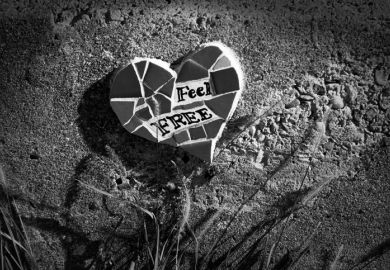This book is full of contradictions. That should be no surprise. Almost 100 years ago, in a short essay on terrorism, Leon Trotsky noted how the "bought-and-paid-for moralists" of the establishment would "make solemn declarations about the 'absolute value' of human life" before sending millions to war to defend the "nation's honour or the monarch's prestige". The contradictions here are just as glaring.
"The new US strategic doctrine of pre-emptive attack used by the Bush administration is in fact extremely dangerous", says Paul Wilkinson. The word "extremely" is italicised in the original in the manner beloved by conspiracy theorists. Forty pages later, he suggests "the best form of prevention is to intercept and pre-empt".
Likewise, Wilkinson proposes to champion Thomas Jefferson's principle of free speech "that truth is great and will prevail if left to herself". This freedom lasts a page before he indicates that "the more responsible mass media organisations" favour "voluntary self-restraint".
The real weakness, though, is one shared by the authors of the Report of the Official Account of the Bombings in London on 7th July 2005 . That is, that what analysts do best today is to describe what, when and where events happen. What they are weakest at is explaining why.
Hence this book lists organisations and chronicles events and legislative responses. But without understanding why such incidents occur, there is little hope of precluding them from happening again. Wilkinson talks of a "battle of ideas" but fails to flesh it out.
The language is loose, unbefitting of a book with academic pretensions, with talk of "fanatics", "carnage", "godfathers of terrorism" and "Al Qaeda's congenital tendency to engage in mass killing". Weak or absent references suggest this to be more of a rant than an insightful analysis.
On several occasions Wilkinson suggests that terrorists seek to create "a climate of fear". He seems unaware of the fact that this pre-dated 9/11 quite significantly. In that regard, Trotsky also had it right when he indicted any terrorist act as inadmissible "because it belittles the role of the masses in their own consciousness" as well as breeding disillusionment and apathy. Today we might be able to say precisely the same things about governments that continually seek to bypass the people in the name of security.
Bill Durodié is senior lecturer in risk and corporate security, Cranfield University.
Terrorism v Democracy: The Liberal State Response
Author - Paul Wilkinson
Publisher - Routledge
Pages - 2
Price - £68.00 and £18.99
ISBN - 0 415 38477 X
Register to continue
Why register?
- Registration is free and only takes a moment
- Once registered, you can read 3 articles a month
- Sign up for our newsletter
Subscribe
Or subscribe for unlimited access to:
- Unlimited access to news, views, insights & reviews
- Digital editions
- Digital access to THE’s university and college rankings analysis
Already registered or a current subscriber? Login



